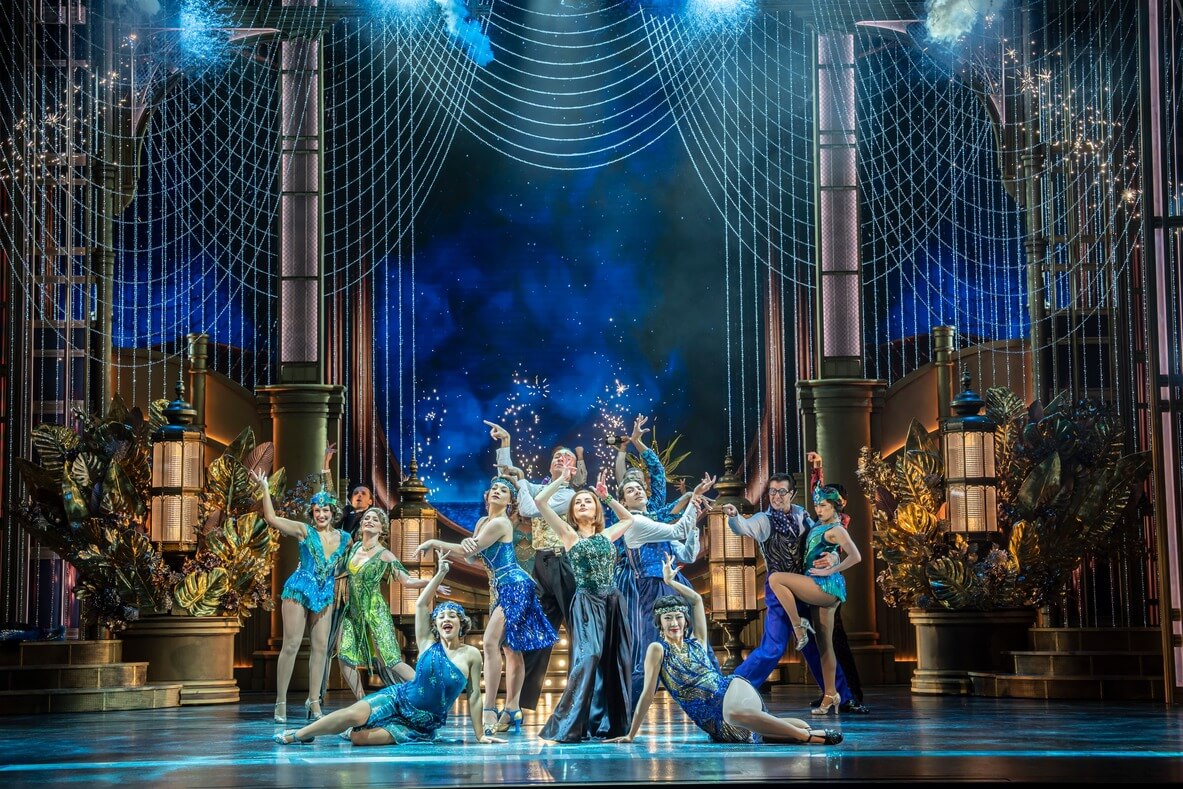The unsettling psychodrama has lost none of its exhausting and electrifying tension in director Matthew Dunster’s production which has just opened at the Young Vic. Harold Pinter’s warhorse performed here with a cast led by a bellowing and cane-wielding Jared Harris, (and which includes David Angland, Joe Cole, Lisa Diveney, Robert Emms and Nicolas Tennant), play their scenes on the thrust stage living-room set designed by Moi Tran , with the audience ranged on three sides. The post-war, north-London home with its proliferation of Woodbine cigarettes, soda siphon, tiled fireplace and all-pervading emotionally stilted atmosphere, envelops everyone in its cloying veil of fake familial collectivism and an undercurrent of barely suppressed violent competitiveness and sexual repression. The characters are universally unpleasant, bullying, antagonistic, manipulative, explosive and damaged beyond repair by truths unsaid, and events inferred. We encounter no concerned inquiries about mental wellbeing here, where each personality is disenchanted and viciously resigned to a world of use or be used.
Surely the prescient question is: Is this a production for now? Given the enormous shift in acceptable behaviours in recent decades, (and if perhaps the nervous and shocked tittering amongst the audience on opening night, was any indication), the answer is no. The searing lack of empathy which separates the characters — and the impossibility of our ever generating any for them — leaves us isolated and revolted by their behaviours. Today, Pinter’s once brilliant work (which this reviewer was stunned by as a young man), feels entirely alien and wholly unreflective of our modern media-fuelled world, where binary opinions dominate and societal mores aren’t permitted nuance or grey areas.

 Lisa Diveney and Joe Cole in The Homecoming at Young Vic. © Manuel Harlan
Lisa Diveney and Joe Cole in The Homecoming at Young Vic. © Manuel Harlan

